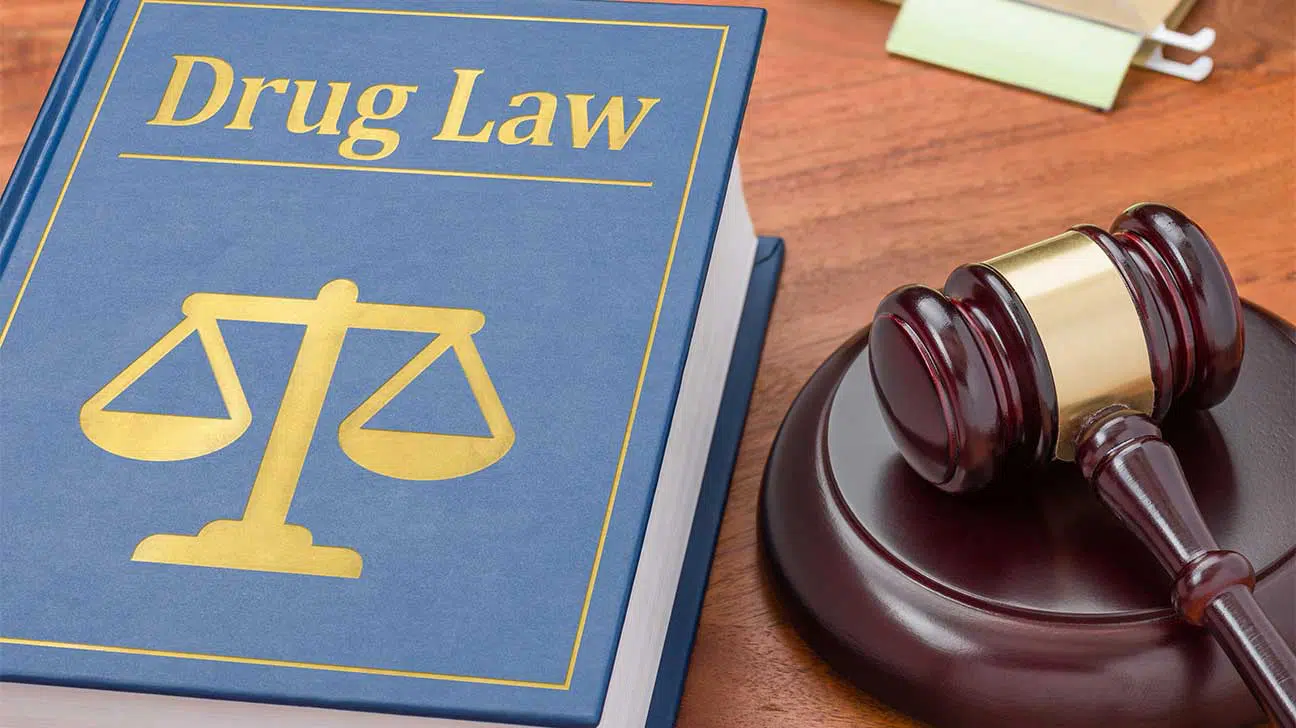
Drug courts are an effective means of managing and treating substance abuse among people who may otherwise be incriminated by law enforcement for illegal substance use.
This is an alternative to criminal court involving assessment and treatment for people with substance use disorders.
Research from the National Institute of Justice (NIJ) has found that drug courts:
- lead to lower rates of recidivism (return to criminal activity)
- cost less than incarceration
- improve public safety
- help people to recover from addiction
Since the first drug court was established in 1989, the Miami-Dade County Felony Drug Court, the NIJ has evaluated these courts and conducted extensive research to improve drug court processes and recovery outcomes.
Effectiveness Of Drug Courts In Reducing Recidivism
When low-level drug crimes are punished with the standard incarceration process, the legal system sees high rates of relapse and recidivism, a person’s rate of re-incarceration.
Additionally, drug use significantly increases the likelihood of illegal activity and repeated offense.
Research published by the National Center for Biotechnology Information (NCBI) found that 68% of drug offenders are rearrested within three years of release from prison.
Drug courts aim to restructure this system to focus less on punishing people with substance abuse issues. Instead, they redirect those efforts to educating and treating them so they’re less likely to commit the same crimes and relapse.
Several studies have found that drug treatment courts greatly reduce rates of re-offenders. One study found a re-arrest rate drop from 40% to 12% after implementing adult drug courts.
Effectiveness Of Drug Courts For Addiction Recovery
Often, people are arrested, go to jail, and return home without the necessary tools to address substance abuse or cope with the underlying issues that contribute to drug dependence.
NCBI research has found that:
- 80% of state prison and local jail inmates have used an illegal drug
- 55% of these inmates used illegal drugs in the month before their arrest
- 53.4% of inmates meet the criteria for drug abuse or dependence
By implementing drug courts, people with non-violent crimes can participate in court-mandated drug treatment as an alternative to incarceration. They also receive treatment they may not otherwise have access to or be encouraged to pursue.
With therapy, regular drug testing, case management, education, and other treatment services to keep participants accountable and drug-free, they’re better equipped to overcome substance abuse.
How Drug Courts Reduce Economic Costs
Research published by Stanford University found that for every dollar spent on drug courts, four dollars are saved in costs associated with incarceration.
Traditional incarceration costs account for factors such as:
- housing
- prison-based treatment expenses
- health care
Additional research from the NIJ has found that treatment and other investment costs average about $1,392 lower per drug court participant.
Not only do these problem-solving courts lower the up-front cost of incarceration, but the lower rates of recidivism prevent repeat offenses and multiple cases of incarceration.
Lower costs per participant coupled with reduced recidivism equate to public savings of about $6,744 on average per participant.
The Drug Court Treatment Process
Many drug court teams put together treatment plans based on evidence-based, trusted methods of recovery for drug and alcohol addiction.
The drug court model works through key components such as:
- screening and assessment
- judicial involvement
- case management
- monitoring, drug testing, and supervision
- graduated sanctions and incentives for the participant
- a plan for treatment and rehabilitation services
These substance abuse treatment programs may use treatment services including:
- self-help programs, such as 12-step groups
- SMART Recovery groups
- case processing
- residential rehab programs
- motivational therapies
- therapeutic communities based on a social learning model
- medication-assisted treatment (MAT) for opioid addiction
- relapse prevention
- group therapy
- individual therapy for mental health
- family therapy
- medical detoxification
Treatment providers and social workers will also work to heal generational issues of trauma, sexual abuse, family drug use, verbal or emotional abuse, economic issues, and more.
Recover From Alcohol And Drug Addiction
A full range of care including everything from outpatient treatment to inpatient rehab programs is available to you or your loved one.
To learn about your treatment options, reach out to our helpline and talk to one of our trained representatives today about a referral to an addiction recovery program.
Addiction Resource aims to provide only the most current, accurate information in regards to addiction and addiction treatment, which means we only reference the most credible sources available.
These include peer-reviewed journals, government entities and academic institutions, and leaders in addiction healthcare and advocacy. Learn more about how we safeguard our content by viewing our editorial policy.
- Bureau of Justice Assistance — Defining Drug Courts: The Key Components
https://www.ojp.gov/pdffiles1/bja/205621.pdf - National Association of Drug Court Professionals (NADCP) — Why Treatment Courts?
https://www.nadcp.org/treatment-courts-work/ - National Center for Biotechnology Information — Treating Substance Use Disorders in the Criminal Justice System
https://www.ncbi.nlm.nih.gov/pmc/articles/PMC3859122/ - National Drug Court Institute (NCDI)
https://www.ndci.org/ - National Drug Court Resource Center — What are drug courts?
https://ndcrc.org/what-are-drug-courts/ - National Institute of Justice — Do Drug Courts Work? Findings From Drug Court Research
https://nij.ojp.gov/topics/articles/do-drug-courts-work-findings-drug-court-research - National Institute of Justice — Overview of Drug Courts
https://nij.ojp.gov/topics/articles/overview-drug-courts - Stanford University — Drug Courts as an Alternative to Incarceration
https://addictionpolicy.stanford.edu/drug-courts-alternative-incarceration' - U.S. Department of Health and Human Services — What Are Drug Courts?
https://www.hhs.gov/opioids/treatment/drug-courts/index.html


